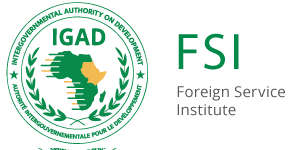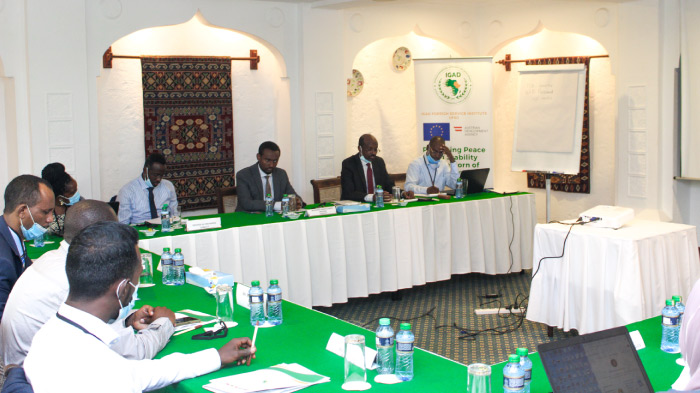December 7, 2021 (Mombasa, KENYA): The IGAD Foreign Service Institute (IFSI) hosted a three-day training on ‘Executive training in leadership and diplomatic skills: Crisis Management’’. The training aimed to equip representatives from IGAD member states with the professional and technical expertise necessary to manage future crises effectively, focusing on communication, leadership, and coordination during times of crisis.
The main objective of the workshop was to prepare Ministries of Foreign Affairs across the IGAD region to handle crises with greater efficiency and strategic foresight. It focused on three key areas: developing crisis communication tools and procedures for clear communication during crises, creating crisis management strategies that involve various actors and stakeholders, and building diplomatic leadership skills to navigate complex situations and work collaboratively with other member states. The training emphasized the importance of preparing for crises before they emerge, enabling member states to respond quickly and cohesively when unexpected events arise;
Amb. Moussa Ali Meigague, IFSI Director, officially opened the workshop and welcomed all participants. In his keynote speech, he noted the evolving nature of crises, noting, “IGAD was originally established to manage crises such as droughts, floods, and famines. While IGAD has developed the capacity to cope with such eco-system crises, unfortunately, the number and severity of crises seems to be increasing are continuing to increase across the region and beyond”.
Representatives from the Ministries of Foreign Affairs of IGAD member states were equipped with skills to develop and formalize a set of crisis communication tools and procedures that will enable them to better manage crises about communication.
The training focused on building an integrated, multi-actor approach to crisis management, highlighting the importance of effective participation by all sectors of society in the economic, political, social, and cultural.
Participants learned how to develop and formalize crisis communication plans, ensuring that member states have clear guidelines for responding to emergencies, coordinating with stakeholders, and communicating effectively with the public.
The training emphasized the need for coordination between various sectors of society to foster a shared, inclusive response to crises. Given the increasing complexity and scope of global and regional crises, effective communication and leadership are more critical than ever. The training aimed to provide participants with the skills needed to tackle crises with a more strategic and coordinated approach.
This training was conducted with the financial support from the European Union through the European Union Trust Fund (EUTF) through the Austrian Development Agency (ADA) under the IPPSHAR Program.




